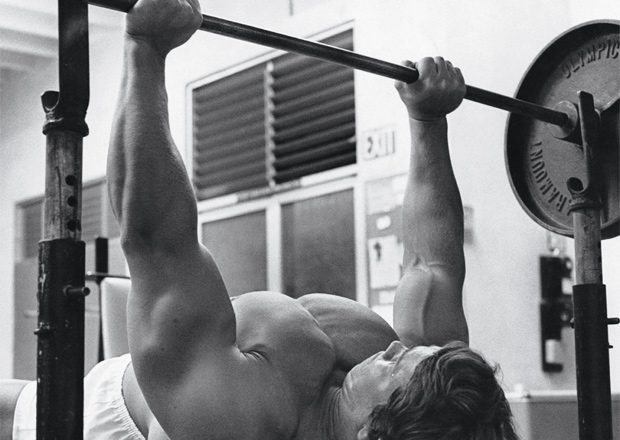Measuring Bench Strength

And as long as we’re talking about 2016, I’ve got a peeve to air. It’s become a commonplace that the GOP has huge “bench strength” coming into the 2016 presidential contest, while the Democrats have a much thinner bench. But I wonder how we’re measuring this.
Presidential candidates tend to emerge from other high political office – the Vice Presidency, governors’ mansions, the Senate – or, much more occasionally, from other exalted perches of our national life. The GOP currently controls significantly more governorships than the Democrats do, so that immediately gives them a larger bench. But apart from that, I’m hard-pressed to identify what makes the GOP bench stronger.
Here’s a list – not exhaustive, but extensive – of names frequently bandied about for the GOP line in 2016:
- Jeb Bush – former Governor of Florida, brother and son of 43rd and 41st Presidents, respectively.
- Ben Carson – retired neurosurgeon and media personality.
- Chris Christie – Governor of New Jersey.
- Ted Cruz – Senator from Texas.
- Carly Fiorina – former CEO.
- Mike Huckabee – former Governor of Arkansas and media personality.
- Bobby Jindal – Governor of Louisiana.
- John Kasich – Governor of Ohio.
- Sarah Palin – former Governor of Alaska, former Vice Presidential nominee.
- Rand Paul – Senator from Kentucky.
- Mitt Romney – former Governor of Massachusetts, former Presidential nominee.
- Rick Santorum – former Senator from Pennsylvania.
- Donald Trump – businessman and media personality.
- Mike Pence – Governor of Indiana.
- Rick Perry – former Governor of Texas.
- Marco Rubio – Senator from Florida.
- Scott Walker – Governor of Wisconsin.
It’s a broad field – even George Pataki – former Governor of New York – and Lindsey Graham – Senator from South Carolina – are making noises about running. Clearly, there are a lot of Republicans who see themselves as potential Presidents, and who think this is a year to at least consider going for it.
Now, here’s list of Democrats, with comparable credentials to the GOP list above:
- Joe Biden – Vice President.
- Cory Booker – Senator from New Jersey.
- Jerry Brown – Governor of California.
- Sherrod Brown – Senator from Ohio.
- Andrew Cuomo – Governor of New York.
- Russ Feingold – former Senator from Wisconsin.
- John Hickenlooper – Governor of Colorado.
- Amy Klobuchar – Senator from Minnesota.
- Gary Locke – former Governor of Washington, former ambassador to China.
- Martin O’Malley – former Governor of Maryland.
- Deval Patrick – former Governor of Massachusetts.
- Ed Rendell – former Governor of Pennsylvania.
- Bernie Sanders – Senator from Vermont.
- Brian Schweitzer – former Governor of Montana.
- Elizabeth Warren – Senator from Massachusetts.
- James Webb – former Senator from Virginia.
This list has some names that look tired to me and some who have a record of accomplishment – but so does the GOP list. It has some currently serving Governors and Senators, and some who served in years past – but so does the GOP list. It has some who won reelection by large margins and some who lost their last bids for office – but so does the GOP list. Like the GOP list, it has current or former Governors and Senators from some of the largest states – New York, California, Ohio, Pennsylvania – as well as from smaller states.
Jim Webb scrambles categories in as fascinating ways as Rand Paul. Russ Feingold, on the merits, seems to me as plausible and interesting a candidate as Mike Huckabee – both are very unlikely to win the nomination, after all, but I can more easily see Russ Feingold making interesting waves on his way to losing than I could Mike Huckabee (at least this time around). I don’t know why current Governor Andrew Cuomo (leaving aside the shadow cast by Sheldon Silver’s recent arrest) is any less plausible or formidable a candidate than former Governor Jeb Bush. And is Jerry Brown really more extreme or absurd a candidate than Rick Perry? Why, exactly?
Of course, the Democratic list is essentially irrelevant, because Hillary Clinton is the overwhelmingly dominant figure in the Democratic field. Anybody who chooses to challenge her is trying to slay a giant – or simply to make a point. That either rules out or diminishes a lot of candidates who might otherwise seem like plausible contenders, from Joe Biden to Brian Schweitzer. There’s nobody on the Democratic side who has remotely the kind of institutional and popular support that Hillary Clinton does. But if she had been felled by a piece of falling masonry in 2013, it’s not clear to me that the Democratic bench would look so terribly weak.
What looks relatively weak is the Democratic agenda – which is pretty normal after going on eight years with its usual mix of accomplishment, compromise and failure.
But it’s not like the GOP is distinguishing itself on that score.